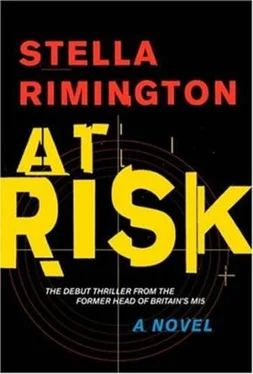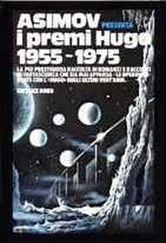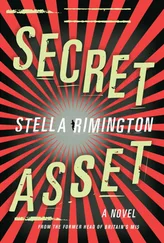She shook her head again. Beyond the long windows and the even blankness of the cookhouse the sky was a bruised, angry grey. A party of young servicemen and -women wandered in, glanced incuriously around them, and left.
Liz regarded her empty coffee mug for a moment. “We lost, didn’t we?”
Wetherby reached across the table and took her hands in his. “We won, Liz. You saved that family’s life. No one could have done more.”
“We were always a step behind. I tried to out-think D’Aubigny, but I couldn’t do it. I just couldn’t get inside her head.”
“You got as close as anyone could have done.”
“At the moment her life ended we were face to face. I think she was even speaking to me. But I couldn’t hear what she was saying.”
Wetherby said nothing. He didn’t release her hands, nor did she attempt to take them away.
“What are we going to do?” Liz asked eventually.
“I thought we might get someone to take us over to Swanley Heath and pick up your car. Then I thought I might drive you back to London.”
“OK,” said Liz.
I have dreamed for years of writing a thriller and have had the main character, Liz, in my mind all that time. She has changed and developed as the years have gone by and as I have changed. She is obviously in large part autobiographical but she also draws on a number of other female intelligence officers I have met during my professional career. The other main characters in the book are entirely imaginary, as is the story. They first emerged in a conversation over dinner at the Winstub Gilg in Mittelbergheim Alsace in June 2001. I have to thank John Rimington, who was sharing the dinner, as well as the Gilg Tokay Pinot Gris, which stoked the conversation and the imagination. The art of novelist and that of intelligence officer are very different, whatever some people may think, and had it not been for the perseverance and encouragement of Sue Freestone, my publisher at Hutchinson, I would not have been able to turn myself from one into the other. Huge thanks are also due to Luke Jennings whose help with the research and the writing made it all happen.
Stella Rimington

Stella Rimington joined MI5 in 1969 and during her nearly thirty-year career she worked in all the main fields of the Service’s responsibilities-counter-subversion, counter-espionage, and counter-terrorism-and became successively director of all three branches. Appointed director general of MI5 in 1992, she was the first woman to hold the post and the first director general whose name was publicly announced on appointment. Following her retirement from MI5 in 1996, she became a non-executive director of Marks and Spencer and published her autobiography, Open Secret, in the UK. She is currently busy at work on her second novel.
***















